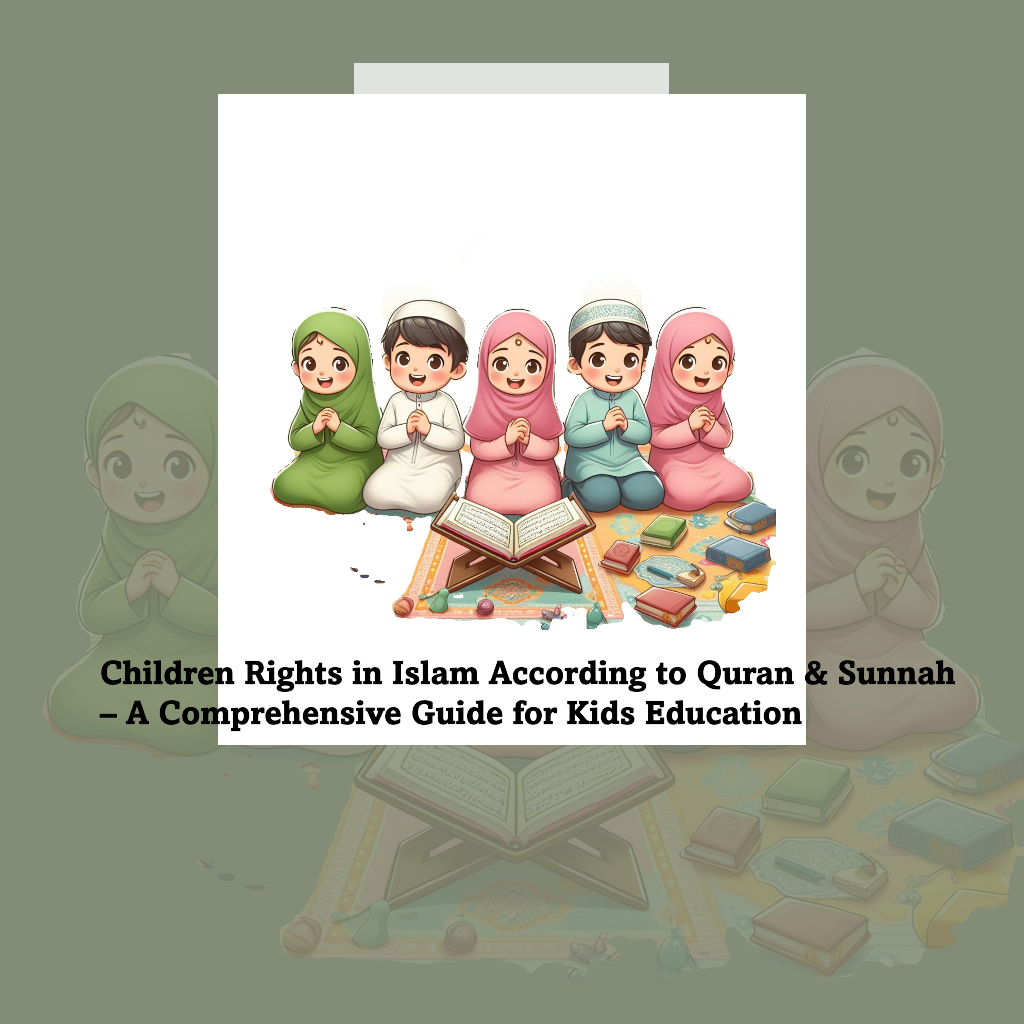In Islam, children have several rights that are guaranteed by Allah and the Prophet Muhammad. These rights include genetic purity, life, legitimacy, a good name, shelter, maintenance, health care, breastfeeding for at least 2 full years, separate sleeping arrangements, financial security, religious training, proper education, training in sports and self-defense, and fair treatment without preference or suppression based on gender. Parents are obligated to fulfill these rights, and their procreation patterns should be modified accordingly. Children are considered a blessing and a source of joy in this world, and parents are encouraged to show mercy and love towards them. Rights of Children in Islam are clear and guide everyone to take care of your child’s with your responsibility. The Quran and hadith emphasize the importance of treating children fairly and with kindness, and not showing preference to one child over another.
The Islamic Perspective on Education for Children
The Islamic perspective on education for children emphasizes the importance of education as a means of preparing children to be responsible and contributing members of society, as well as a way to develop their moral and ethical character. The Quran and Hadith provide guidance on the role of education in the development of children, and there is a strong emphasis on the importance of education for both boys and girls. Education in Islam is considered a fundamental right for all individuals, and it is the responsibility of parents and the community to ensure that children receive a proper education. The Islamic concept of education goes beyond just academic learning and includes the development of the whole child, including their moral, spiritual, and physical development.
Children Right to Education in Islam Perspective
The Islamic perspective on education for children emphasizes the importance of education as a means of preparing children to be responsible and contributing members of society, as well as a way to develop their moral and ethical character. The Islamic concept of education goes beyond just academic learning and includes the development of the whole child, including their moral, spiritual, and physical development. The Islamic perspective on education also emphasizes the importance of providing a well-rounded education that includes both religious and secular subjects, and the role of parents and the community in ensuring that children receive a proper education.
Rights of Children According to Quran and Sunnah
The rights of children according to the Quran and Sunnah in Islam are comprehensive and emphasize the importance of providing for children’s physical, emotional, and spiritual needs. Children rights are derived from the teachings of the Quran and the Hadith, emphasizing the responsibility of parents to fulfill these rights and raise their children with love, care, and guidance. The Qur’an and Sunnah nicely explain the rights of children. Girls education in Islam and boys education in Islam, both have rights to learn and to seek the education on equal basis. Children are seen as a blessing from Allah, and parents are entrusted with the duty to provide for their children’s physical, emotional, and spiritual well-being, ensuring they grow up to be responsible and righteous individuals.
-
- Love and respectful treatment.
- Fair treatment without preference or neglect.
- Good education, which encompasses both religious and worldly knowledge.
- Safety and protection from harm.
- Provide the basic necessities of life such as shelter, food, and clothing.
- Maintenance and financial security.
- Health care and well-being.
- Breastfeeding for at least 2 full years.
- Separate sleeping arrangements, especially for adolescents.
- Religious training and moral education.
- Training in sports and self-defense.
- A good name and genetic purity.
- Legitimacy and a respectable life.
- The right to be fed, clothed, educated, and protected until adulthood.












+ There are no comments
Add yours